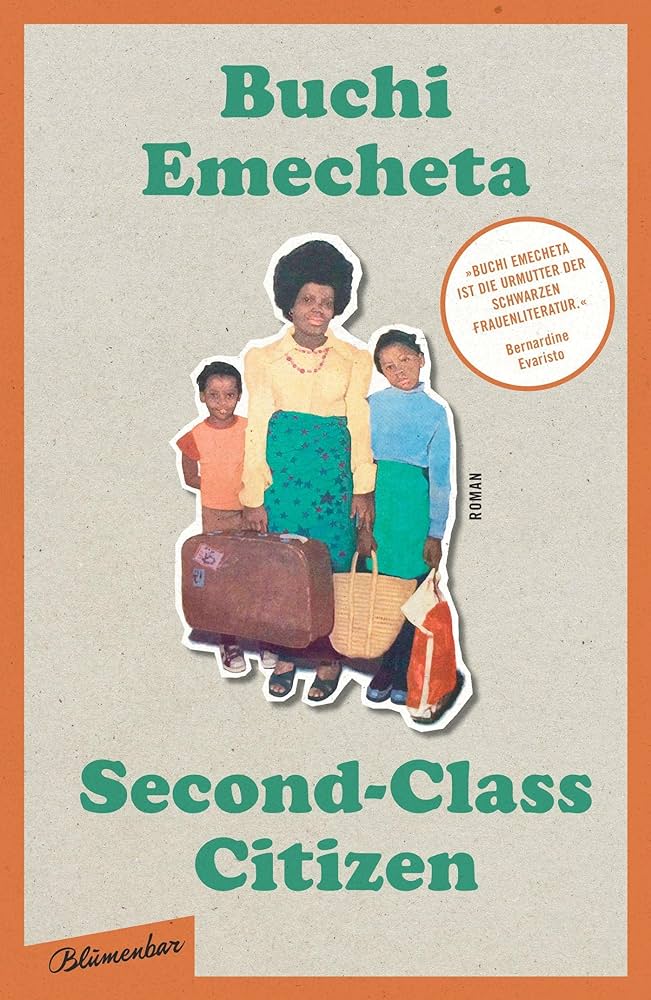“The Second Class Citizen” by Buchi Emecheta unfolds a poignant narrative that delves into the life of Ada, a woman who navigates a myriad of challenges simply because of her gender. Born into an Igbo family, Ada faces the harsh reality of a society that places the male gender on a pedestal, relegating women to a secondary status. The novel traces Ada’s journey as she battles societal norms to pursue an education, only to encounter even greater challenges in her marital life.
Ada’s early years are marked by the stark contrast between her and her brother, Boy. While Boy is sent to school, Ada is denied this opportunity solely due to her gender. The prevalent theme of gender inequality permeates Ada’s formative years, shaping her determination to pursue education against all odds. This struggle sets the stage for the overarching themes that thread through the fabric of the narrative.
As Ada’s story unfolds, themes such as racism, class, gender, domestic violence, and failed marriage emerge as prominent elements. When Ada makes the decision to travel to England, her choice is driven by a desire for education, a longing ignited by witnessing the return of an Igbo man from England. Her clandestine pursuit of education reflects the resilience of the human spirit in the face of societal constraints.
Upon arriving in England, Ada and her family find themselves relegated to a ghetto, emphasizing the theme of racism. The harsh living conditions and the subpar healthcare available to them underscore the discrimination faced by second-class citizens. This vivid portrayal of racism serves as a stark commentary on the challenges encountered by immigrants in a foreign land.
The intersection of class and gender further unfolds as Ada’s struggle for education intensifies. In her hometown, she faces resistance to attending school due to societal norms that devalue women. Ada’s clandestine attendance at a missionary school, with the support of Mr. Kunle, illustrates the interconnectedness of class and gender struggles in her life.
The theme of domestic violence and the subsequent failed marriage between Ada and Francis becomes a pivotal point in the narrative. Ada’s decision to take birth control measures without informing her husband leads to a violent reaction from Francis, exposing the fragility of their relationship. The courtroom drama that ensues paints a grim picture of domestic abuse, with Francis denying paternity and destroying evidence.
The rich array of characters in “Second Class Citizen” adds depth to the narrative. Ada, Boy, Mr. Kunle, Francis, Titi, Vicky, Bubu, lawyer Nweze, and Mr. Okpara each contribute to the unfolding drama, shaping the trajectory of Ada’s life. Their interactions and relationships provide a nuanced perspective on the intricacies of societal expectations and interpersonal dynamics.
In contemplating the moral lessons embedded in Ada’s story, one cannot ignore the impact of parental influence on life choices. Ada’s forced marriage to Francis and subsequent struggles highlight the importance of supportive and empowering family structures. The narrative underscores the detrimental effects of forcing individuals into unions that lack genuine compatibility and shared values.
Moreover, the novel encourages reflection on the destructive nature of racism. Ada’s experience in England serves as a microcosm of broader societal issues, emphasizing the need for equality and understanding across diverse communities. The moral lesson transcends the individual struggles of Ada to encompass a call for societal change and empathy.
In conclusion, “The Second Class Citizen” by Buchi Emecheta offers a poignant exploration of societal norms, gender inequality, racism, and the complexities of human relationships. Ada’s journey becomes a lens through which readers can reflect on the broader issues plaguing our world. As the narrative unfolds, it challenges us to question societal constructs, champion equality, and strive for a more compassionate and inclusive future.
Characters of Second class citizen by Buchi Emecheta
The characters of Second class citizen by Buchi Emecheta are Ada, Boy, Mr. Kunle, Francis, Titi, Vicky, Bubu, lawyer Nweze, and Mr. Okpara
Ada is the first child in her family. She went to a missionary school and her brother is a Boy. Also, she is the husband of Francis.
Boy
Boy is the second child of his family. He is the brother of Ada. He was sent to school and supported by his parents because he is a male child.
Mr. Kunle
Mr. Kunle is Ada’s teacher in the missionary school.
Francis
Francis is the husband of Ada. He studied Accountancy in the university.
Titi
Titi is the child of Mr. and Mrs Francis. She is the sister of Vicky.
Vicky
Vicky is also, the child of Mr. and Mrs. Francis. He is a sibling to Titi.
Bubu
Bubu is the third child of Ada, and was given birth to in England.
Lawyer Nweze
Lawyer Nweze is a man who resides in England. He is a lawyer by profession.






